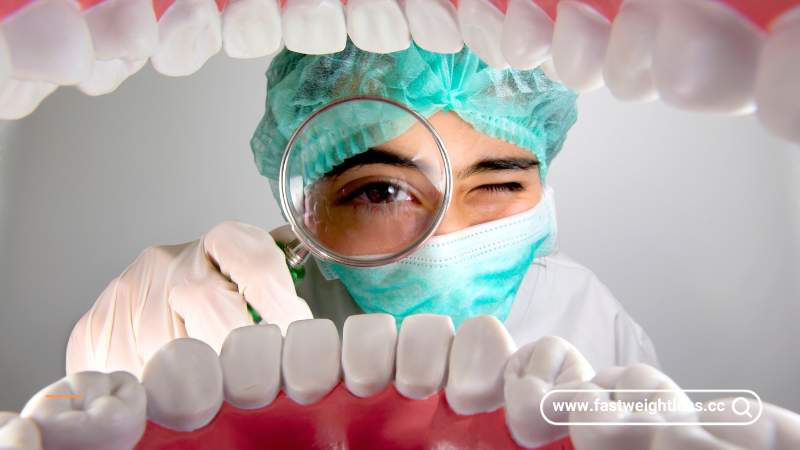Oral health is a fundamental right that should be available to everyone, not just a privilege for a select few. Many individuals lack access to necessary dental care, leading to detrimental effects on their overall health and well-being.
This article explores the importance of ensuring equal access to oral health services, the barriers that exist, and the potential solutions to bridge the gap. By recognizing oral health as a right, we can work towards creating a society where everyone has the opportunity to maintain optimal oral hygiene and prevent severe dental issues that can otherwise impact their quality of life.
The Importance Of Oral Health
Oral health is often overlooked in discussions about overall well-being. However, maintaining good oral health is not just about having a sparkling smile; it plays a crucial role in our physical and mental health. From preventing diseases to boosting our self-esteem, oral health is a right that should be accessible to everyone, regardless of their privilege.
Connection Between Oral Health And Overall Well-being
Our mouths are the gateway to our bodies, and the health of our mouths can affect the health of our entire bodies. Poor oral health has been linked to a range of systemic conditions, including cardiovascular disease, diabetes, respiratory infections, and even pregnancy complications. Bacteria and inflammation from gum disease can enter the bloodstream and trigger inflammation in other parts of the body, leading to serious health issues. It is important to remember that good oral hygiene is not just about maintaining a bright smile; it is an essential component of maintaining overall well-being.
Impact Of Oral Health On Physical And Mental Health
Good oral health not only prevents physical health problems but also has a significant impact on our mental well-being. Dental problems such as missing teeth, cavities, or gum disease can lead to pain, discomfort, and difficulty eating. This can result in poor nutrition and overall physical health. Additionally, the appearance of our teeth can greatly impact our self-confidence and self-esteem. Studies have shown that individuals with poor oral health are more likely to suffer from depression, anxiety, and social isolation. By prioritizing oral health, we can improve both our physical and mental health.
The Role Of Oral Health In Maintaining A High Quality Of Life
Oral health is not just about avoiding diseases or enhancing appearance; it plays a crucial role in maintaining a high quality of life. When our mouths are healthy, we are able to speak clearly, chew food properly, and enjoy a variety of flavors. This allows us to fully participate in social activities, enjoy meals with family and friends, and communicate effectively. On the other hand, poor oral health can lead to difficulty speaking, chewing, and swallowing, which can significantly impact our day-to-day lives. By prioritizing oral health, we can ensure a better quality of life for ourselves and those around us.
Dental Disparities: A Global Challenge
Oral health is a fundamental aspect of overall well-being, one that should be accessible to everyone. However, dental disparities persist across the globe, posing a significant challenge. These disparities are evident among different socioeconomic groups, often leaving marginalized populations without proper access to essential oral health services. In this section, we will explore the oral health disparities faced by various socioeconomic groups, the barriers that hinder access to oral health services for marginalized populations, and strategies to address the inequalities in dental care provision.
Oral Health Disparities Among Different Socioeconomic Groups
When it comes to oral health, socioeconomic status plays a crucial role. Individuals from low-income backgrounds often face higher rates of dental issues and have limited access to necessary dental care. This creates a cycle of poor oral health that perpetuates the disparities between different socioeconomic groups.
Some key disparities among socioeconomic groups include:
- Higher incidence of dental caries
- Elevated prevalence of gum diseases
- Inadequate preventive care
- Limited access to specialist services
These disparities highlight the urgent need for targeted interventions and policies to bridge the gap and ensure equitable access to oral health services for all individuals, regardless of their socioeconomic status.
Barriers To Access Oral Health Services For Marginalized Populations
Marginalized populations face numerous barriers when it comes to accessing oral health services, compounding the dental disparities they experience. These barriers can vary depending on factors such as income, education, geographic location, and cultural norms. Some of the common barriers faced by marginalized populations include:
- Lack of dental insurance coverage
- Financial constraints
- Inadequate availability of dental clinics in underserved areas
- Limited transportation options
- Cultural and linguistic barriers
- Fear and anxiety related to dental visits
Addressing these barriers is vital to ensure that marginalized populations have equal opportunities to maintain good oral health. Efforts must be made to break down these barriers through targeted campaigns, community outreach programs, and policy changes.
Addressing The Inequalities In Dental Care Provision
To eliminate dental disparities and ensure that oral health is a right, not a privilege, it is crucial to address the inequalities in dental care provision. This involves implementing comprehensive strategies that target both preventive and treatment aspects of oral healthcare. Some key initiatives include:
- Expanding access to affordable dental insurance coverage
- Increasing funding for dental clinics in underserved areas
- Promoting oral health education and awareness campaigns
- Improving cultural competence in dental care
- Providing subsidies or financial assistance for low-income individuals
By implementing these strategies, we can work towards a future where oral health disparities are minimized, and everyone has equal access to quality oral healthcare services.
Promoting Oral Health Equity
Oral health is a fundamental part of overall well-being, yet access to proper oral healthcare remains a privilege rather than a right for many individuals. The lack of access to affordable dental care disproportionately affects low-income individuals, communities of color, and vulnerable populations. Promoting oral health equity is crucial to ensure that everyone has equal access to oral healthcare, regardless of their socioeconomic status or background. In this blog post, we will explore key strategies for promoting oral health equity by prioritizing dental health education and prevention programs, advocating for policies that promote equal access to oral healthcare, and fostering collaboration between healthcare providers and policymakers.
Dental Health Education And Prevention Programs
Dental health education and prevention programs play a vital role in promoting oral health equity. These programs aim to improve oral health literacy and empower individuals to take ownership of their oral hygiene. By increasing awareness about the importance of regular dental check-ups, proper brushing and flossing techniques, and the impact of diet on oral health, these programs can help prevent oral diseases and reduce the need for costly treatments.
Moreover, dental health education programs can target vulnerable populations by tailoring their approach to meet specific needs. For example, programs can be designed to address language barriers, cultural beliefs, and financial constraints. By providing information in multiple languages and culturally sensitive materials, these programs ensure that no one is left behind when it comes to oral health knowledge.
Advocating For Policies That Promote Equal Access To Oral Healthcare
Advocacy plays a pivotal role in promoting oral health equity. It involves raising awareness about the inequities in oral healthcare access and advocating for policies that address these disparities. By engaging with policymakers, dental professionals, and community organizations, advocacy efforts can create meaningful change.
One key policy advocacy area is the expansion of insurance coverage for dental services. Many individuals, particularly those from low-income backgrounds, lack dental insurance or have limited coverage. Advocating for policies that broaden access to dental insurance can help bridge the gap in oral healthcare disparities and ensure that everyone has affordable options for dental care.
In addition, advocating for increased funding and resources for community clinics and dental outreach programs can help expand access to dental care for underserved populations. These efforts can improve outreach efforts and ensure that individuals have access to quality oral healthcare services regardless of their socioeconomic status.
Collaboration Between Healthcare Providers And Policymakers
Collaboration between healthcare providers and policymakers is crucial for promoting oral health equity. By working together, they can identify gaps in access to oral healthcare and develop targeted strategies to address these disparities.
Healthcare providers can play an instrumental role in advocating for oral health equity by sharing their expertise and experiences with policymakers. By providing insights on the challenges faced by individuals who lack access to dental care, they can inform the development of policies that prioritize oral health equity.
Policymakers, on the other hand, can leverage their influence to shape policies that promote equal access to oral healthcare services. They can partner with healthcare providers to develop and implement initiatives that expand dental insurance coverage, increase funding for dental clinics, and improve access to preventive dental care.
In conclusion, promoting oral health equity requires a multi-faceted approach that encompasses dental health education and prevention programs, advocacy for policies that promote equal access to oral healthcare, and collaboration between healthcare providers and policymakers. By prioritizing these strategies, we can work towards a future where oral health is truly a right, not a privilege.
Innovative Solutions To Expand Oral Health Coverage
Oral health is fundamental to overall well-being, yet it is often seen as a privilege rather than a right. Many individuals, particularly those from low-income backgrounds or marginalized communities, struggle to access essential dental care. However, with the advent of technology and innovative approaches, there are now solutions that can help expand oral health coverage and reach those who have traditionally been underserved. In this section, we will delve into three innovative solutions that have the potential to provide widespread oral health care to all.
1. Telehealth And Digital Platforms For Remote Dental Consultations
In today’s digital era, telehealth and digital platforms have revolutionized the way healthcare services are delivered. These technologies offer new opportunities for individuals to access dental consultations remotely, eliminating the need to physically visit a dental clinic. Through live video consultations, patients can connect with dental professionals, discuss their concerns, and receive expert advice and guidance.
This approach is particularly beneficial for individuals living in remote areas where accessing dental care may be challenging. It also offers convenience for patients who may have transportation or mobility limitations. By leveraging telehealth and digital platforms, oral health professionals can assess oral conditions, provide treatment recommendations, and even prescribe medications, ultimately expanding the reach of dental care.
2. Community-based Oral Health Initiatives
Community-based oral health initiatives are another effective way to expand oral health coverage. These initiatives involve collaboration between dental professionals, community organizations, and local authorities to bring oral health services directly to underserved populations. Mobile dental clinics can be set up in community centers, schools, or other accessible locations to provide preventative and basic dental care.
Community-based initiatives not only address the issue of accessibility but also promote oral health education and awareness. They facilitate early prevention and intervention by conducting screenings and educational workshops, empowering individuals to take charge of their oral health. By working together with communities, oral health professionals can tackle the barriers that prevent individuals from receiving the care they need.
3. Affordable Dental Care Options For Underserved Populations
Ensuring affordable dental care options for underserved populations is crucial to expanding oral health coverage. Many individuals simply cannot afford or lack insurance coverage for necessary dental treatments. To overcome this barrier, various programs and initiatives have been implemented to provide affordable dental care to those in need.
One such initiative is the establishment of dental clinics in low-income areas, offering reduced-cost or free services based on income levels. These clinics are staffed by dental professionals who are committed to serving the community and bridging the gap in oral health care access. Additionally, collaborations between dental schools and community organizations create opportunities for dental students to gain practical experience while providing affordable care.
Another solution is the implementation of sliding fee scales, where the cost of dental services is adjusted according to an individual’s ability to pay. This ensures that even those with limited financial resources can receive quality dental care without facing overwhelming financial burdens.
Overall, innovative solutions such as telehealth, community-based initiatives, and affordable dental care options play essential roles in expanding oral health coverage. By leveraging technology, collaborating with communities, and addressing financial barriers, we can work towards making oral health care a right for all, rather than a privilege limited to a few.
Making Oral Health A Priority: A Call To Action
Making Oral Health a Priority: A Call to Action
Oral health is a basic human right that should be accessible to everyone, regardless of their socioeconomic status. Yet, for many individuals, oral health care is overlooked and seen as a privilege rather than a necessity. This lack of prioritization has detrimental effects on individuals’ overall health and well-being. It is time to shift our mindset and make oral health a priority. In order to achieve this, we need to raise awareness about the importance of oral health as a right, empower individuals to take control of their oral health, and mobilize communities and organizations to support oral health initiatives.
Raising Awareness About The Importance Of Oral Health As A Right
Many individuals are unaware of the connection between oral health and overall health. By raising awareness about the importance of oral health as a right, we can educate people on the impact that oral health has on their overall well-being. One way to do this is through educational campaigns and public service announcements that highlight the importance of regular dental check-ups, proper oral hygiene practices, and the link between oral health and chronic diseases such as diabetes and cardiovascular disease.
Empowering Individuals To Take Control Of Their Oral Health
Empowering individuals to take control of their oral health is crucial in making oral health a priority. This can be achieved through education and providing individuals with the tools and resources they need to maintain good oral hygiene. One way to empower individuals is by promoting preventive measures such as regular brushing and flossing, as well as proper nutrition and avoiding harmful habits such as smoking. Additionally, providing access to affordable dental care and oral health screenings can help individuals take proactive steps towards maintaining their oral health.
Mobilizing Communities And Organizations To Support Oral Health Initiatives
Creating a supportive environment for oral health requires the mobilization of communities and organizations. By coming together and allocating resources towards oral health initiatives, we can ensure that everyone has access to quality dental care. This can be achieved through partnerships between dental professionals and community organizations, as well as the implementation of policies that prioritize oral health. By working together, we can create a society where oral health is not a privilege, but a right for all.
Frequently Asked Questions Of Oral Health Is A Right, Not A Privilege
Is Oral Health A Public Health Issue?
Yes, oral health is a public health issue that affects the overall well-being of individuals. It impacts speech, nutrition, and self-esteem. Regular dental care and preventive measures are crucial for maintaining good oral health. Neglecting oral health can lead to serious conditions like gum disease, tooth decay, and even systemic health problems.
Does Everyone Have Equal Access To Oral Healthcare Services?
Access to oral healthcare services is not equal for everyone. Financial constraints, geographic location, and lack of insurance can be barriers to accessing necessary dental care. These disparities can result in unequal dental health outcomes among different populations.
Does Oral Health Include Lips?
Yes, oral health includes lips. Proper oral health care involves keeping your lips healthy, clean, and free from any issues.
What Constitutes Good Oral Health?
Good oral health involves regular brushing and flossing, along with routine dental check-ups. This helps prevent tooth decay, gum disease, and bad breath. Maintaining a balanced diet and limiting sugary drinks also contribute to good oral health.
Conclusion
Oral health is not a privilege but a right that everyone should have access to. It is crucial to prioritize dental care, as it affects not only our physical well-being but also our overall quality of life. By raising awareness and advocating for affordable oral healthcare, we can ensure that everyone, regardless of their socio-economic status, receives the dental care they deserve.
Together, we can work towards a society where oral health is truly accessible to all.
















Add Comment